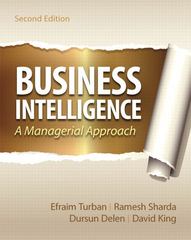Question
PROJECT : DESIGN AND CONSTRUCT AN ELECTRIC CAR Answer the following for Presentation-DESIGN AND CONSTRUCT AN ELECTRIC VEHICLE Slide 1: Introduction Title: Project Overview Briefly
PROJECT : DESIGN AND CONSTRUCT AN ELECTRIC CAR
Answer the following for Presentation-DESIGN AND CONSTRUCT AN ELECTRIC VEHICLE
Slide 1: Introduction
Title: Project Overview
Briefly introduce the project and its importance. Slide 2: Business Case
Title: Business Case
Explain the business reasons behind the project.
Discuss the expected benefits, ROI, and strategic alignment
Slide 3: Project Charter Title: Project Charter
Define the project's purpose and objectives.
Identify the project manager and key stakeholders.
Slide 4: Project Scope
Title: Project Scope
Define the project's boundaries and deliverables.
Include a scope statement and a breakdown of what's included and excluded.
Slide 5: Cost Management Title: Cost Management
Discuss the project's budget, funding sources, and cost estimation methods.
Highlight cost control strategies.
Slide 6: Schedule Management
Title: Schedule Management
Present the project timeline and milestones.
Discuss the critical path and key scheduling tools.
Slide 7: Quality Plans
Title: Quality Plans
Explain the project's quality objectives and standards.
Discuss the quality assurance and control processes.
Slide 8: Risk Management
Title: Risk Management
Briefly cover risk assessment, mitigation strategies, and a risk management plan.
Slide 9: Communication
Title: Communication
Describe the project's communication plan, including stakeholders and frequency.
Slide 10: Conclusion Title: Conclusion
Summarize the key points from each section.
Emphasize the project's importance and its alignment with organizational goals.
Slide 1: Introduction
In the introduction, briefly set the stage for the presentation.
Provide context for why the project is important and what it aims to achieve.
Mention that you will cover various key aspects of the project in the following slides.
Slide 2: Business Case
In the Business Case slide, go into more detail about the rationale for the project.
Explain the specific problems or opportunities that led to the project's initiation.
Outline the expected benefits, both tangible (e.g., increased revenue, cost savings) and intangible (e.g., improved customer satisfaction).
Mention any regulatory or industry compliance requirements that drive the project.
Slide 3: Project Charter
Expand on the Project Charter by discussing its contents.
Include the project's mission, objectives, constraints, and assumptions.
Mention the project manager's name and responsibilities.
List the key stakeholders and their roles in the project.
Slide 4: Project Scope
In the Project Scope slide, provide more information on what is included in the project.
Discuss the project's boundaries, including what is explicitly within scope and what is out of scope.
Include a high-level project scope statement.
Provide a visual representation of the project scope, such as a diagram or flowchart.
Slide 5: Cost Management
In the Cost Management section, detail the financial aspects of the project.
Discuss the project's budget, including the total cost and the allocation of funds.
Explain how cost estimates were determined (e.g., cost breakdown structure, expert judgment).
Highlight cost control strategies, such as regular financial reporting, variance analysis, and change control procedures.
Slide 6: Schedule Management
In the Schedule Management slide, delve into the project timeline.
Present a Gantt chart or timeline that shows key milestones and dependencies.
Explain how the critical path was determined and why it's crucial.
Mention scheduling tools and software used in project management (e.g., Microsoft Project).
Slide 7: Quality Plans
In the Quality Plans slide, provide more detail about how quality will be managed.
Discuss specific quality objectives and standards that the project will adhere to.
Explain quality assurance processes, such as peer reviews and inspections.
Detail quality control processes, including testing, audits, and how defects will be addressed.
Slide 8: Risk Management
For the Risk Management slide, go into greater depth regarding risk-related aspects.
Present the results of a risk assessment, identifying key risks and their potential impact.
Explain mitigation and contingency strategies for managing risks.
Mention the risk management plan, which outlines risk monitoring and response strategies.
Slide 9: Communication
In the Communication section, discuss how project information will be disseminated.
Present a communication plan detailing the target audience, frequency of updates, and preferred communication channels.
Mention the importance of regular project status reports and stakeholder engagement.
Slide 10: Conclusion
Summarize the key takeaways from the entire presentation.
Reiterate the project's importance and alignment with the organization's goals.
Step by Step Solution
There are 3 Steps involved in it
Step: 1

Get Instant Access to Expert-Tailored Solutions
See step-by-step solutions with expert insights and AI powered tools for academic success
Step: 2

Step: 3

Ace Your Homework with AI
Get the answers you need in no time with our AI-driven, step-by-step assistance
Get Started


